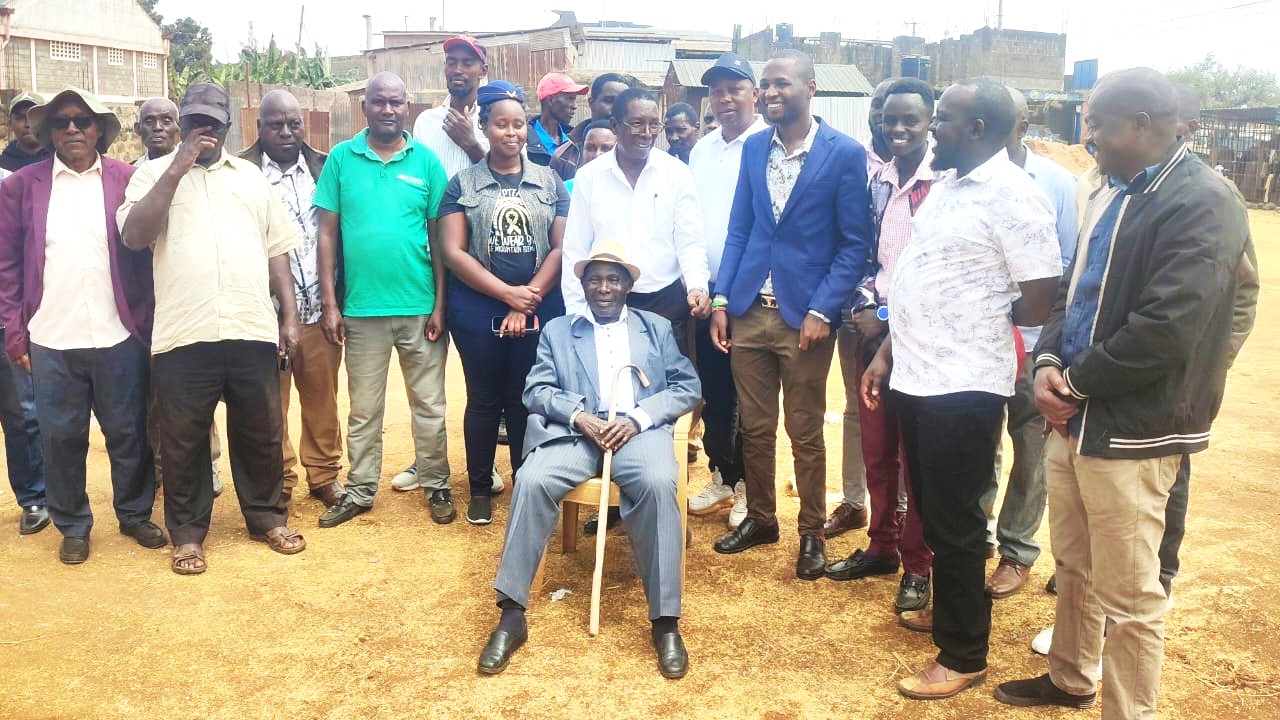 Mwea rice farmers during a consultative meeting in Kirinyaga on August 23, 2025
Mwea rice farmers during a consultative meeting in Kirinyaga on August 23, 2025Rice farmers from the Mwea Irrigation Scheme in Kirinyaga County have called for the creation of a national council to advise the government on rice policies and farmer welfare.
The farmers said such a council would help provide informed recommendations to the state, streamline the sector, and enhance engagement between farmers and the government.
Their remarks came just days after the High Court in Kerugoya allowed the government to import 250,000 tonnes of duty-free rice. The farmers argued that the council would enable the government to offer targeted support while ensuring local production is prioritised.
Mwea Rice Growers Co-operative Society chairperson Muriuki Ndege said the construction of Thiba Dam has enabled farmers to plant up to three seasons annually, significantly boosting production.
With the scheme supplying more than 60 per cent of the country’s rice, Ndege argued that the government should prioritise buying from local farmers before turning to imports. He spoke during a consultative meeting on Saturday.
“Farmers face a crisis every season because they harvest expecting their produce to be bought, but the market is often flooded by imports,” he said.
Ndege added that a council would help establish the exact quantity of rice produced locally so the government can purchase it first before allowing imports.
Justice Edward Muriithi, who presided over a case filed by the Farmers Party on behalf of rice growers, directed the government to establish the volume of rice produced locally and ensure farmers’ stocks are purchased.
The petition challenged a gazette notice issued on July 28 by Agriculture CS Mutahi Kagwe, which had allowed the importation of 500,000 tonnes of duty-free grade one milled white rice before December 31 this year.
Farmers told the court they were holding rice worth millions of shillings due to limited market access. The government, however, argued that imports were necessary to cover the national supply deficit, with Kenyans consuming about 1.3 million tonnes of rice annually against local production of about 264,000 tonnes.
The court reduced the importation figure to 250,000 tonnes and shortened the importation window from six months to three, running from August to October, subject to monitoring of local production.
“What is required is a scheme to ensure only what is necessary is imported to meet the deficit while keeping prices stable,” Justice Muriithi ruled.
Former Mwea MP Alfred Nderitu said the proposed council would help develop strategies and policies for the sustainable growth of the rice sector.
He added that it could also address challenges such as the spread of Golden Apple snails and the high cost of inputs.
“Such a council would ensure the government has accurate data on rice stocks before approving imports,” he said.
Armstrong Gitonga, secretary-general of the Mwea Veterans Community-Based Organisation, urged the government to impose higher taxes on rice imports, arguing that duty-free imports disadvantage local farmers.
“How can locally produced rice compete with duty-free imports, given the high costs of inputs and labour?” he asked.






![[PHOTOS] Kindiki leads economic empowerment forum in Wajir](/_next/image?url=https%3A%2F%2Fcdn.radioafrica.digital%2Fimage%2F2025%2F08%2F5a14de4c-c863-48bb-819d-36f1f26ae789.jpeg&w=3840&q=100)




